Landlocked


Author: Doris Lessing
Category: Fiction
Published: a long time ago
Series:
View: 441
Read OnlineIn the aftermath of World War II, Martha Quest finds herself completely disillusioned. She is losing faith with the communist movement in Africa, and her marriage to one of the movement's leaders is disintegrating. Determined to resist the erosion of her personality, she engages in the first satisfactory love affair and breaks free, if only momentarily, from her suffocating unhappiness.
Landlocked is the fourth novel of Doris Lessing's classic Children of Violence sequence of novels, each a masterpiece in its own right, and collectively an incisive, all encompassing vision of our world in the twentiethcentury.
Author Biography: Doris Lessing was born Doris May Taylor in Persia (now Iran) on October 22, 1919. Both of her parents were British: Her father, who had been crippled in World War I, was a clerk in the Imperial Bank of Persia; her mother had been a nurse. In 1925, lured by the promise of getting rich through maize farming, the family moved to the British colony in Southern Rhodesia (now Zimbabwe). Her mother installed Doris in a covenant school, and then later in an all-girls high school in the capital of Salisbury, from which she soon dropped out. She was 13, and it was the end of her formal education.
Lessing's life has been a challenge to her belief that people cannot resist the currents of their time, as she fought against the cultural and biological imperatives that fated her to sink without a murmur into marriage and motherhood. Lessing believes that she was freer than most people because she became a writer. For her, writing is a process of "setting a distance," taking the "raw, the individual, the uncriticized, the unexamined, into therealm of the general."
Lessing's fiction is deeply autobiographical, much of it emerging out of her experiences in Africa. Drawing upon her childhood memories and her serious engagement with politics and social concerns, Lessing has written about the clash of cultures, the gross injustices of racial inequality, the struggle among opposing elements within an individual's own personality, and the conflict between the individual conscience and the collective good.
Over the years, Lessing has attempted to accommodate what she admires in the novels of the 19th century — their "climate of ethical judgment" — to the demands of 20th-century ideas about consciousness and time. After writing the Children of Violence series (1952-1959), a formally conventional bildungsroman (novel of education) about the growth in consciousness of her heroine, Martha Quest, Lessing broke new ground with The Golden Notebook (1962), a daring narrative experiment in which the multiple selves of a contemporary woman are rendered in astonishing depth and detail. Anna Wolf, like Lessing herself, strives for ruthless honesty as she aims to free herself from the chaos, emotional numbness and hypocrisy afflicting her generation.
In the 1970s and 1980s, Lessing began to explore more fully the quasi-mystical insight Anna Wolf seems to reach by the end of The Golden Notebook. Her "inner-space fiction" deals with cosmic fantasies Briefing for a Descent into Hell, 1971), dreamscapes and other dimensions (Memoirs of a Survivor, 1974), and science-fiction probings of higher planes of existence (Canopus in Argos: Archives, 1979-1983). These reflect Lessing's interest, since the 1960s, in Idries Shah, whose writings on Sufi mysticism stress the evolution of consciousness and the belief that individual liberation can come about only if people understand the link between their own fates and the fate of society.
Lessing's other novels include The Good Terrorist (1985) and The Fifth Child (1988); she also published two novels under the pseudonym Jane Somers (The Diary of a Good Neighbor, 1983, and If the Old Could., 1984). In addition, she has written several nonfiction works, including books about cats, a love since childhood. Under My Skin: Volume One of My Autobiography, to 1949 was recently joined by Walking in the Shade: 1949 to 1962, both published by HarperCollins.
Landlocked is the fourth novel of Doris Lessing's classic Children of Violence sequence of novels, each a masterpiece in its own right, and collectively an incisive, all encompassing vision of our world in the twentiethcentury.
Author Biography: Doris Lessing was born Doris May Taylor in Persia (now Iran) on October 22, 1919. Both of her parents were British: Her father, who had been crippled in World War I, was a clerk in the Imperial Bank of Persia; her mother had been a nurse. In 1925, lured by the promise of getting rich through maize farming, the family moved to the British colony in Southern Rhodesia (now Zimbabwe). Her mother installed Doris in a covenant school, and then later in an all-girls high school in the capital of Salisbury, from which she soon dropped out. She was 13, and it was the end of her formal education.
Lessing's life has been a challenge to her belief that people cannot resist the currents of their time, as she fought against the cultural and biological imperatives that fated her to sink without a murmur into marriage and motherhood. Lessing believes that she was freer than most people because she became a writer. For her, writing is a process of "setting a distance," taking the "raw, the individual, the uncriticized, the unexamined, into therealm of the general."
Lessing's fiction is deeply autobiographical, much of it emerging out of her experiences in Africa. Drawing upon her childhood memories and her serious engagement with politics and social concerns, Lessing has written about the clash of cultures, the gross injustices of racial inequality, the struggle among opposing elements within an individual's own personality, and the conflict between the individual conscience and the collective good.
Over the years, Lessing has attempted to accommodate what she admires in the novels of the 19th century — their "climate of ethical judgment" — to the demands of 20th-century ideas about consciousness and time. After writing the Children of Violence series (1952-1959), a formally conventional bildungsroman (novel of education) about the growth in consciousness of her heroine, Martha Quest, Lessing broke new ground with The Golden Notebook (1962), a daring narrative experiment in which the multiple selves of a contemporary woman are rendered in astonishing depth and detail. Anna Wolf, like Lessing herself, strives for ruthless honesty as she aims to free herself from the chaos, emotional numbness and hypocrisy afflicting her generation.
In the 1970s and 1980s, Lessing began to explore more fully the quasi-mystical insight Anna Wolf seems to reach by the end of The Golden Notebook. Her "inner-space fiction" deals with cosmic fantasies Briefing for a Descent into Hell, 1971), dreamscapes and other dimensions (Memoirs of a Survivor, 1974), and science-fiction probings of higher planes of existence (Canopus in Argos: Archives, 1979-1983). These reflect Lessing's interest, since the 1960s, in Idries Shah, whose writings on Sufi mysticism stress the evolution of consciousness and the belief that individual liberation can come about only if people understand the link between their own fates and the fate of society.
Lessing's other novels include The Good Terrorist (1985) and The Fifth Child (1988); she also published two novels under the pseudonym Jane Somers (The Diary of a Good Neighbor, 1983, and If the Old Could., 1984). In addition, she has written several nonfiction works, including books about cats, a love since childhood. Under My Skin: Volume One of My Autobiography, to 1949 was recently joined by Walking in the Shade: 1949 to 1962, both published by HarperCollins.
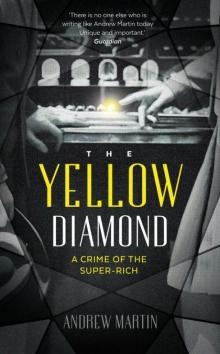 The Yellow Diamond
The Yellow Diamond Back To The Future, Part III
Back To The Future, Part III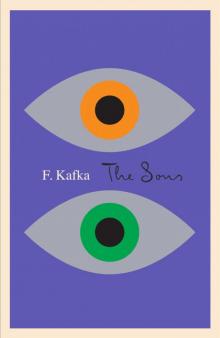 Sons
Sons The Return of Rafe MacKade
The Return of Rafe MacKade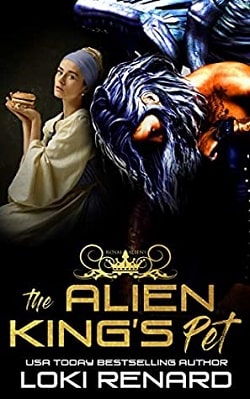 The Alien King's Pet (Royal Aliens 2)
The Alien King's Pet (Royal Aliens 2)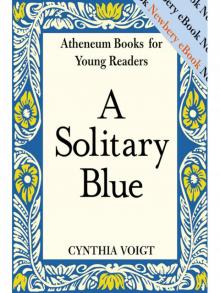 A Solitary Blue
A Solitary Blue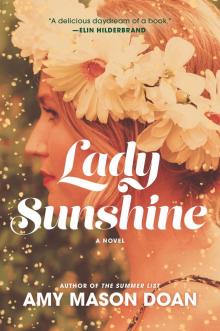 Lady Sunshine
Lady Sunshine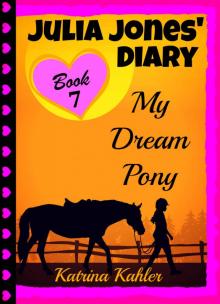 My Dream Pony
My Dream Pony